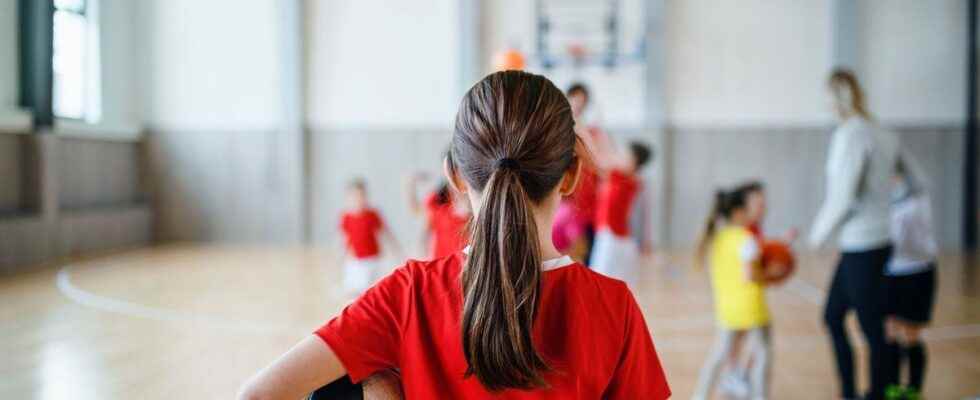Published on
Updated
Reading 2 mins.
Faced with potential risks and injuries, it can be difficult to let your child play sports at school. How to secure your business? Should we trust or intervene? Doctissimo answers you.
Following the tragedy that left a teenager quadriplegic during a UNSS match, sport in the school environment came under scrutiny. Should all so-called “risky” activities be banned from school programs or should these practices be made more secure? If no clear answer is currently given to parents, some lines of thought allow to see more clearly.
Learn to trust teachers
If it is strongly advised to encourage your child to play sports to promote his physical development, the risk of injury is no less real. Growth osteochondrosis, tearing of the epithelium, ankle sprain… Sports injuries in children are common.
However, this should not prevent parents “to trust the teachers“, underlines Benoît Hubert, professor of EPS in the Ardennes and co-secretary general of the National Syndicate of Physical Education (Snep-Fsu).
“All the teachers are trained on the pedagogical and didactic aspect of sport, but also on the safety aspect. Those who teach the mastery of sports “at risk” or with particular constraints – rugby type – have a little more advanced training. Finally, ski instructors in particular benefit from continuous training. But all this does not take away the learning of the risk in the student. And even if we do our best, unfortunately this does not prevent all accidents.”
If the teacher completely hears “parental concerns“, he wishes to recall the general seriousness of the teachers, who respect the many “strict rules dictated in the school setting“.
“Furthermore, PE teachers handle very diverse profiles of children, athletic or not. They are used to adapting. Removing a field of activity would therefore be a shame for the child. At this age, they have to try different practices, and touch a little bit of everything”confides the co-secretary general of Snep-Fsu.
“The removal of the medical certificate is a disaster”
If Benoît Hubert specifies that some adjustments could be necessary in the school environment, in particular with regard to the practice of rugby, he is on the other hand categorical about the abolition of the medical certificate.
“At school, it is no longer compulsory. From my point of view, it’s a disaster: we no longer control anything in school medicine. However, young people aged 11, 12, 13 and over are changing day by day. An annual health check-up would therefore be the minimum.
If the certificate is no longer mandatory – except in sports with special constraints – nothing prevents parents from carrying out a health check of their child (ren) before registering them for football or swimming pool.
Another good reflex: learn to spot a concussion in your child (a type of brain injury characterized by neck pain, vomiting, headaches, confusion, convulsions, etc.) to ensure that is properly supported.
